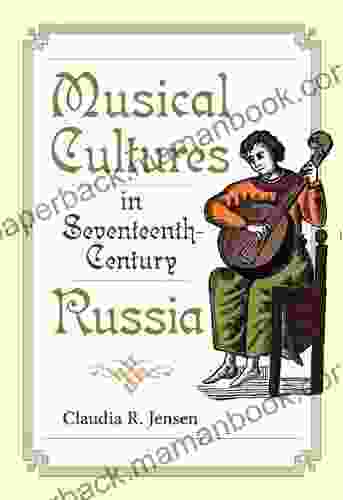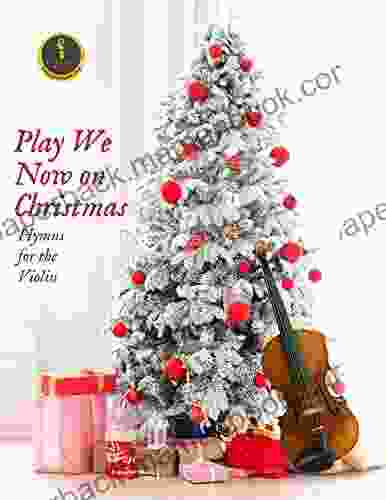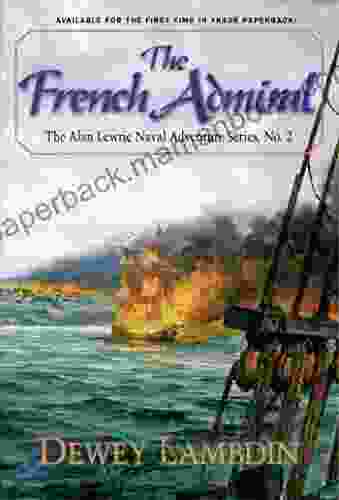The 17th century marked a significant chapter in the evolution of Russian musical culture. It witnessed the convergence of sacred and secular musical traditions, the emergence of new genres and instruments, and the influence of Western musical practices. This vibrant musical landscape reflected the rich cultural exchange and social transformations that characterized the period.
5 out of 5
| Language | : | English |
| File size | : | 4704 KB |
| Text-to-Speech | : | Enabled |
| Screen Reader | : | Supported |
| Print length | : | 376 pages |
Sacred Music: The Foundation of Russian Musical Culture
Russian sacred music had its roots in the Byzantine tradition, with Kievan chant and znamenny chant forming the backbone of liturgical music. Kievan chant, introduced in the 10th century, employed intricate melodic patterns and a rich system of ornamentation. Znamenny chant, which emerged in the 14th century, was characterized by its simplicity and use of eight basic melodic formulas.
During the 17th century, znamenny chant underwent significant development. New melodies were composed, and the use of harmonies and polyphonic textures became more prevalent. The rise of part singing, where multiple vocal lines were combined, added further depth to Russian sacred music.
Secular Music: A Growing Presence
Alongside sacred music, secular music began to flourish in the 17th century. Folk songs, often passed down through oral tradition, played an important role in rural communities. These songs covered a wide range of themes, from love and nature to historical events.
Skomorokhi, itinerant musicians and entertainers, played a vital role in disseminating secular music. They performed songs, dances, and acrobatic feats at markets, festivals, and royal courts. Their repertoire included folk songs, as well as songs with satirical or humorous lyrics.
New Genres and Instruments
The 17th century witnessed the emergence of new musical genres in Russia. Choral singing, where multiple voices sang in unison, became popular, particularly in urban areas. The development of part singing also led to the creation of new genres, such as cantatas and concertos.
New instruments were introduced to Russian music during this period, including the violin, viola, cello, and lute. These instruments, brought from Western Europe, expanded the tonal and expressive possibilities of Russian music.
Prominent Russian Composers and Musicians
The 17th century saw the rise of several prominent Russian composers and musicians. Nikon, the Patriarch of Moscow, played a pivotal role in promoting sacred music and establishing new musical schools. He reformed znamenny chant and commissioned the composition of new liturgical works.
Other notable composers included Ivan Shadrikov, whose choral works showcased the beauty of part singing, and Vasily Polenov, known for his complex polyphonic compositions. Fyodor Khristoforov, a gifted musician and singer, served as the choirmaster of the Kremlin Palace and contributed to the development of Western-influenced music in Russia.
Western Musical Influences
The 17th century marked a period of increasing interaction between Russia and Western Europe. This exchange extended to the realm of music, with Western musical practices and styles gradually making their way into Russia.
Russian musicians and singers began to adopt elements of Western polyphony and harmonic structures into their compositions. Foreign musicians, such as Nicolaus Diletsky, were invited to Russia to teach Western musical techniques and train performers.
Social and Cultural Significance of Music
Music played a significant role in Russian society during the 17th century. It was an integral part of religious ceremonies, state occasions, and social gatherings. Music provided entertainment, fostered community bonds, and expressed the cultural identity of the Russian people.
The development of part singing and choral singing allowed for the creation of more elaborate musical performances, which were often accompanied by dancing and other forms of entertainment. These performances served as a source of joy and spectacle for the Russian people.
Legacy and Impact
The musical cultures of 17th-century Russia left a profound legacy that continued to shape the nation's artistic identity. The traditions of znamenny chant and part singing remained central to Russian sacred music. Folk songs and skomorokhi performances continued to be a vibrant part of Russian folk culture.
The influence of Western musical practices, such as polyphony and harmonic structures, became deeply ingrained in Russian music. This synthesis of Eastern and Western traditions laid the foundation for the development of classical music in Russia in the centuries that followed.
The 17th century stands as a testament to the rich and diverse musical culture of Russia. It was a time of innovation, exchange, and transformation, where sacred and secular traditions intertwined to create a vibrant musical landscape. The musical cultures of this period laid the foundation for the development of Russian music in the centuries that followed, and continue to resonate with music lovers today.

















































































































